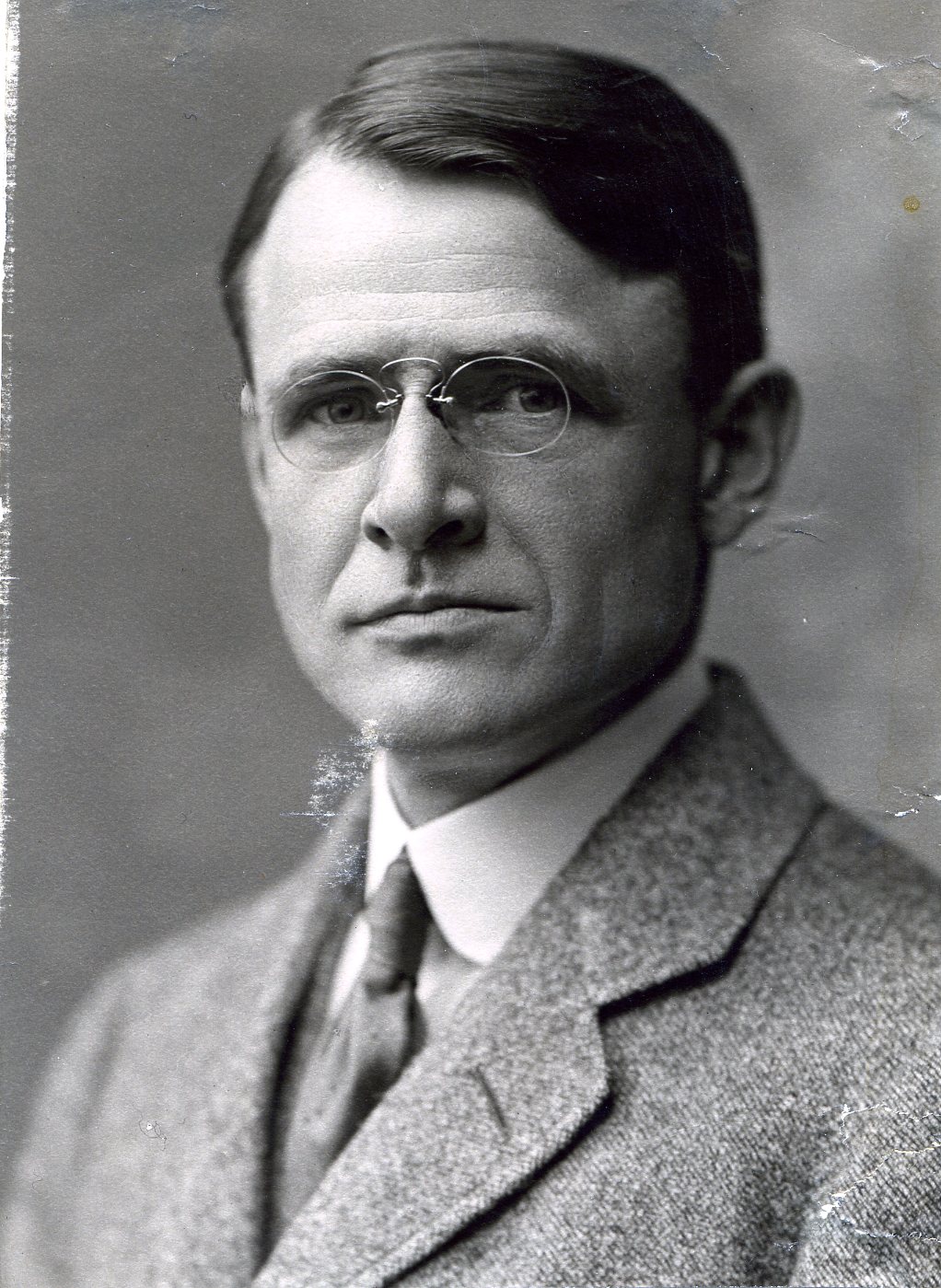Author
Centurion, 1913–1940
Born 21 November 1867 in Meadville, Pennsylvania
Died 3 August 1940 in Oak Bluffs, Massachusetts
Buried Greendale Cemetery , Meadville, Pennsylvania
, Meadville, Pennsylvania
Proposed by Henry deForest Baldwin and Arnold W. Brunner
Elected 3 May 1913 at age forty-five
Century Memorial
Frederic C. Howe, a member of the Century for twenty-seven years, was a unique character. He was a naive philosopher, a reformer untouched by heat or fury, an evangelist whose approach to public questions was political and economical, not moralistic; a sort of socialist, perhaps, but one who did not believe in the class struggle or the incorrigible stupidity of the people. He was fond of people and cultivated friendships, but even bankers and monopolists did not arouse his hatred. As might be supposed, he had a keen appreciation of the benefits of membership in the Century.
He kept busy from his graduation at Johns Hopkins in 1892 to the time of his death in his seventy-third year, trying to change things, not as a rabble rouser but through sweet reasonableness. What he wanted to change he believed to be chiefly the result of bad laws, passed at the behest of special interests, and yet he never lost faith in the capacity of the masses to rule if special law-made privileges were eradicated; because privileges, such as protective tariffs, public franchises, and land grants to railroads, created monopolies which became too powerful for the masses to control and made their beneficiaries corrupters of public officials. He distrusted charity—bread and circuses. He was not eager to do things for the underprivileged with other people’s money—the people could take care of themselves, if relieved of the burdens of land monopoly and other monopolies.
While practicing law in Cleveland, he became secretary of the Municipal Association, a reform organization, and soon found himself running on the Republican ticket for the City Council. Tom Johnson was then running for mayor, attacking the holders of public utility franchises. They were both elected. Johnson, the rich monopolist who under the influence of Henry George’s writings turned municipal reformer, was probably the major influence in Howe’s life. He worked with him in Cleveland for ten years, as did his friend and college roommate, Newton D. Baker. They carried on a lively fight. Howe introduced public welfare measures in the City Council and was surprised to find that public baths were denounced as socialistic by the Chamber of Commerce, that playgrounds were condemned as enhancing Johnson’s popularity and adding to the tax rate. When his term in the Council expired, Johnson made him Chairman of the City’s Finance Commission. Later he served a term in the Ohio State Senate, held important administrative positions, lectured in various universities, conducted research projects, traveled through Europe investigating city tax systems and what European city governments had done for social welfare; he wrote many books about the corrupting influence of law-made privileges, the possibilities of city planning and the usefulness of cooperative enterprises. He was a leading champion for the movement in Cleveland for planning the city so as to make it beautiful. While thus engaged Howe was practicing law and, it seems, with considerable success because when in 1909 he completed his last job in Cleveland, that of a member of the tax commission, he found himself possessed of a modest income. He determined to retire from politics and law and removed to New York with the idea of devoting the rest of his life to writing.
But the urge to do things soon led him to become director of the People’s Institute. He filled that position brilliantly for three years; then President Wilson made him Commissioner of Immigration. He had a stormy career at Ellis Island in trying to look after the immigrants and the unfortunate persons detained there. The capacity of bureaucrats to frustrate his efforts to curb oppression made him more distrustful of the state and alas! Also of civil service reform. After five years he resigned in disgust. But he kept on filling one position after another until the end.
He never dreamed of himself as a great leader; he had confidence in his own opinions but he was not intolerant or bitter; he was guileless. He loved to work with those in power, who he believed to be devoted to the cause of the people. He was content to write his books and reports, do his research jobs, proclaim with modesty his strong convictions about municipal and popular rule and his objectives for good city government, freedom and general happiness. He could be a faithful lieutenant of a leader whose objectives were measurably his own, and asked for himself no popular credit, only the consciousness of having contributed to human betterment.
He had a happy life doing what he loved to do.
Henry deForest Baldwin
1940 Century Memorials

